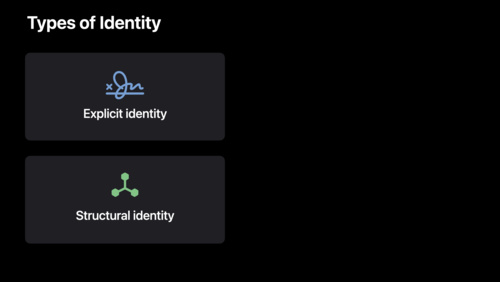
Why Ruby on Rails Will Never Die: A Veteran Coder’s Perspective | by Kenroy Reid
As someone who’s been working with Ruby on Rails for years, I've seen countless technologies rise and fall. I’ve heard the chatter about the "death" of Rails more times than I can count, but every time, it emerges stronger and more relevant. Rails may not be the newest, flashiest framework, but it continues to thrive for some very solid reasons. Let me explain why, from the perspective of a seasoned developer, Ruby on Rails will never die. 1. Maturity and Stability In an industry obsessed with new trends, the value of a mature, battle-tested framework like Rails is often underestimated. When you’re building a production application that needs to scale and handle real-world complexities, stability is critical. Rails has been around since 2005, and in that time, it's proven itself in high-stakes environments. Rails follows the philosophy of “Convention over Configuration,” which means it provides sensible defaults while giving developers flexibility. This makes it quick to start a project, but also robust enough to handle long-term scaling. Over the years, Rails has honed its conventions and practices, leading to a framework that is predictable, dependable, and has a strong focus on maintainability. 2. Productivity Out of the Box As developers, we care about efficiency. When I want to get an MVP (Minimum Viable Product) out the door fast, Rails still reigns supreme. Rails’ emphasis on simplicity allows you to build a fully functional web application in a fraction of the time compared to many other frameworks. The combination of scaffolding, built-in generators, and a comprehensive ecosystem means you can focus on what makes your app unique, instead of reinventing the wheel. In a world where time is money, Rails lets you ship features rapidly without sacrificing quality. That’s why startups and small teams have loved Rails for years—and why, when those startups grow, they don’t feel the need to switch frameworks. 3. The Vibrant Ecosystem Ruby on Rails isn’t just a framework; it’s an ecosystem. The Ruby community has built an extensive collection of gems—pre-built libraries that cover everything from authentication to background jobs to API integrations. Instead of custom-building common functionality, you can lean on these reliable, community-supported gems. Need OAuth authentication? devise has you covered. Want background job processing? sidekiq is ready to go. This ecosystem not only speeds up development but also ensures that developers aren't duplicating efforts across projects. Rails’ modularity and the availability of these gems mean you can focus your energy on innovation rather than routine coding. 4. A Thriving, Supportive Community Ruby on Rails has one of the most passionate and helpful developer communities out there. While newer frameworks might have their moment in the sun, Rails has sustained a strong community of contributors and users for over a decade. This means you'll never be short of tutorials, Stack Overflow answers, blog posts, or open-source tools to help you when you're stuck. For newcomers, the wealth of documentation and community-driven content makes Rails one of the friendliest frameworks to pick up. As an experienced coder, I’ve found that the sense of camaraderie and collaboration in the Ruby community is unparalleled. You’re never coding in a vacuum. 5. It Powers Major Platforms When people say Ruby on Rails is dead, I like to point to the giants still running Rails apps in production. From GitHub to Shopify to Basecamp, many of the world’s largest and most important platforms are built on Rails. These companies aren’t stuck on Rails—they choose it because it works. And it’s not just about the present; the longevity of these apps shows that Rails is capable of handling large-scale traffic and business-critical workloads over many years. The idea that Rails doesn’t scale is an outdated misconception. Given the right practices, Rails scales just fine, as proven by these tech giants. 6. Continuous Evolution Far from stagnating, Rails continues to evolve. Rails 7.0, with its emphasis on Hotwire and the elimination of the need for a full-fledged JavaScript framework, has shown that Rails is more than capable of adapting to modern development trends. Hotwire brings back the simplicity of server-rendered HTML, while also offering the real-time, interactive experiences that users expect from modern web apps—all without the heavy client-side JavaScript burden. The Rails core team has always been open to innovation while maintaining the principles that made the framework great in the first place. This balance between evolution and stability is what keeps Rails relevant. It integrates with modern front-end libraries, APIs, and deployment strategies while preserving its powerful core. 7. It's Not Just for Startups While it’s true that Rails is a favorite among startups for quickly iterating on ideas, its simplicity and scalability also make it ideal for enterprise applications. Large-scale companies love Rails for its maintainability and the ease with which they can onboard new developers. Code written in Rails five or even ten years ago is still easy to understand because the framework promotes readability and clear patterns. In my experience, companies large and small appreciate frameworks that help them avoid unnecessary complexity. Rails shines here because, despite its flexibility, it encourages good development practices, reducing technical debt over time. 8. The Human Element At its heart, Ruby on Rails is designed for developer happiness. As someone who's worked in a variety of languages and frameworks, I can attest to the joy that Ruby brings to coding. Its expressive syntax and the Rails framework’s elegant solutions allow me to focus on crafting well-structured, beautiful code. When coding is enjoyable, productivity naturally follows. That’s a massive factor in Rails’ enduring popularity. There’s a reason many developers who leave Rails for shinier frameworks eventually return. It’s hard to beat the balance of power, simplicity, and enjoyment that Rails provides. Conclusion Ruby on Rails is not dead—far from it. It’s a framework that has matured, adapted, and continues to be a force in web development. Whether you're building an MVP, scaling an enterprise app, or just want a joyful coding experience, Rails delivers. From its robust ecosystem and strong community to its modern enhancements like Hotwire, Rails remains a vital and powerful tool in the web developer's arsenal. In a world where fads come and go, Ruby on Rails has stood the test of time, and I don’t see it disappearing anytime soon.















